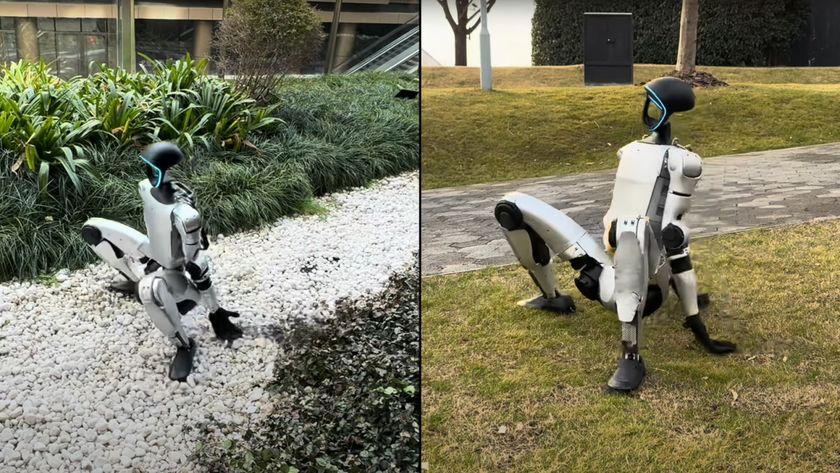Robots Pump Gas
A gas-pumping robot has been introduced in the Netherlands; the inventor is also a gas station owner.
"I was on a farm and I saw a robotic arm milking a cow. If a robot can do that then why can't it fill a car tank, I thought," said developer and gas station operator Nico van Staveren. "Drivers needn't get dirty hands or smell of petrol again."
The device consists of a robotic arm fitted with various sensors; the device first registers the car, looking it up in its database. Once the car make is known, the blue collar robot carefully opens the exterior flap, unscrews the gas cap, and extends the fuel nozzle into the tank opening (see video).
The robot would cost about $110,000 (75,000 euro); the robot works on any car that does not require a key to access the gas cap. However, if it is true that oil production could peak this year, it might be worth it to have robotic precision while dispensing precious resources.
Movie-goers are already familiar with the concept; do you remember the automated Texaco station from the 1989 film Back to the Future: Part II? Remember, "You can trust your car to the system with the star."
I like service-oriented robots; I think that the blue collar robot from science fiction writer Harry Harrison's 1956 story The Velvet Glove would be glad to get a good job like pumping gas:
"The overworked leg motor would have to cool down before he could work on it, plenty of time to skim through the newspaper. With the chronic worry of the unemployed, he snapped it open to the want ads and ran his eye down the Help Wanted - Robot column..." (Read more about blue collar bot)
Via Robot Fills Your Car While You Wait. see a brief video of the gas pumping robot.
Sign up for the Live Science daily newsletter now
Get the world’s most fascinating discoveries delivered straight to your inbox.
(This Science Fiction in the News story used with permission of Technovelgy.com - where science meets fiction
- Vote For Your Favorite Robot
- Great Inventions: Quiz Yourself
- Top 10 Time Travel Tales











